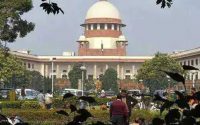Explained: What is ‘contempt of court’, and why does the A-G have to consent to these proceedings?
Source:-https://indianexpress.com
Attorney General K K Venugopal on Thursday gave his consent for the initiation of criminal contempt proceedings against stand-up comedian Kunal Kamra for his tweets following the Supreme Court’s decision to grant interim bail to television anchor Arnab Goswami.
Writing to one Skand Bajpai who had sought his consent, Venugopal said: “…People believe that they can boldly and brazenly condemn the Supreme Court of India and its judges by exercising what they believe is their freedom of speech…I believe that it is time that people understand that attacking the Supreme Court of India unjustifiably and brazenly will attract punishment under the Contempt of Courts Act, 1972.”
Civil contempt means wilful disobedience of any judgment, decree, direction, order, writ or other process of a court, or wilful breach of an undertaking given to a court.
Criminal contempt, on the other hand, is attracted by the publication (whether by words, spoken or written, or by signs, or by visible representations, or otherwise) of any matter or the doing of any other act whatsoever which:
(i) scandalises or tends to scandalise, or lowers or tends to lower the authority of, any court; or
(ii) prejudices, or interferes or tends to interfere with, the due course of any judicial proceeding; or
(iii) interferes or tends to interfere with, or obstructs or tends to obstruct, the administration of justice in any other manner.
In 2006, the government brought in an amendment, which now provides “truth” as defence provided it is bona fide and in public interest.
But why is the A-G’s consent needed to initiate contempt of court proceedings?
Subsection 1 of Section 15 (Cognizance of criminal contempt in other cases) of The Contempt of Courts Act, 1971 reads: “In the case of a criminal contempt, other than a contempt referred to in Section 14 (“Procedure where contempt is in the face of the Supreme Court or a High Court”), the Supreme Court or the High Court may take action on its own motion or on a motion made by (a) the Advocate-General, or (b) any other person, with the consent in writing of the Advocate-General…”.
In August, A-G Venugopal turned down a request by one Anuj Saxena for his consent to initiate criminal contempt of court proceedings against actor Swara Bhasker for allegedly making “derogatory and scandalous” statements against the Supreme Court.
What is the punishment for contempt of court?
According to the Act, contempt of court may be punished with simple imprisonment for a term which may extend to six months, or with fine which may extend to two thousand rupees, or with both, provided that the accused may be discharged or the punishment awarded may be remitted on apology being made to the satisfaction of the court.
The Supreme Court recently found activist-advocate Prashant Bhushan guilty of contempt of court for two of his tweets, and imposed a token fine of Re 1 on him after Bhushan refused to apologise.



